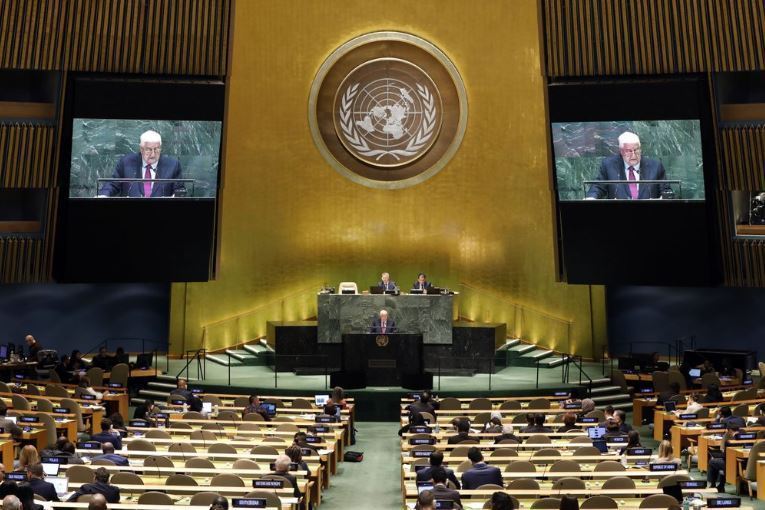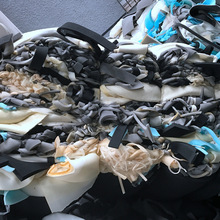Democrats are still battling themselves on court reform.
The Presidential Commission on the Supreme Court of the United States—the 36-member commission that President Joe Biden formed in April to consider various methods of court reform—held its third public meeting on Tuesday. The urgent necessity of reform was made manifest when Judge Amy Coney Barrett was rushed onto the court this past October, despite the fact that 60 million Americans had already cast a ballot in the 2020 elections, and despite the fact that the Republican-controlled Senate had previously held open a seat for nearly a year in 2016 under the premise that the “people” ought to decide who filled that court seat. The commission is co-chaired by professors Cristina Rodríguez and Bob Bauer, and their brief is to study structural court reforms ranging from court expansion and term limits to robust ethics reforms and jurisdiction stripping. The commission itself, peopled by indisputably brilliant legal academics, former judges, and prominent Supreme Court practitioners, is holding six public meetings over 180 days, after which its final report is due to the president. Smaller panels of bipartisan commissioners will be researching multiple proposed reforms and then submitting their report to the president—but not offering any formal recommendations to the Biden administration.
Progressive critics have urged that the commission itself is, therefore, nothing more than an effort to push an emergency issue off into the future and to smother the voices of real court critics proposing massive structural reform. On Tuesday, some of those same critics testified before the commission, and it was immediately clear both why they are so frustrated and also why they were left off the commission. In fact, if there was any real friction in evidence, it didn’t come from the Republican witnesses, who spent their time mouthing platitudes about “freewheeling” liberal justices and living constitutionalism and how everything would be nonpartisan again if only everyone were just an Orginalist/Umpire/Robot; commissioners largely treated that as the comedy stylings of conservative legal discourse from the 1990s and ignored it. No, the friction was between the left and the left—and it wasn’t just about tactics and strategy. It was about the distance that exists between those who exist in political reality (the critics) and those who are still writing Article III fan fiction (the members of the commission).
Advertisement Advertisement Advertisement AdvertisementAmong those presenting testimony Tuesday were Nan Aron of the Alliance for Justice, who openly, if reluctantly, embraced court expansion; Sharon M. McGowan, the chief strategy officer and legal director of Lambda Legal, who asked how she was meant to try cases in front of judges who had earned their seats by opposing LGBTQ equality; and Wade Henderson, interim president and CEO of the Leadership Conference on Civil and Human Rights, who urged the commission to “seriously consider all ways in which people most impacted by the Court’s decisions could be better served by the institution that is tasked with administering justice.”* In his written testimony, Christopher Kang—who served in the Obama White House for nearly seven years, as deputy counsel to the president and as special assistant to the president for legislative affairs—perhaps best captured the sense that the commission itselfwas on trial.
AdvertisementKang, who helped spearhead the confirmations of Justices Sonia Sotomayor and Elena Kagan to the Supreme Court, was candid in his testimony that, having been the consummate insider, he was the most unlikely co-founder of Demand Justice, a group that advocates for expanding the court to 13 justices: As he testified: “I had always considered myself an institutionalist. I wanted to advance change from the inside and work through the system, willing to find compromise and progress from within.”
AdvertisementKang talked about his own progression from institutionalist to activist, a result of the asymmetry that has come from how America’s two political parties have envisioned the court in recent years. He quoted Penn State Law professor Eleanor Brown, who put it this way a few years back:
AdvertisementAdvertisementWe have all been sold this notion that there is an impartial, independent judiciary working for the common good. People on the left have disproportionately bought that fiction. People on the right never bought that fiction. If people on the left buy the fiction and people on the right do not buy the fiction, it means that people on the right … are behaving in activist ways, they are always acutely aware of the stakes and the implications in a way that people on the left are not.
Kang added that “I admit that until a few years ago, I bought that fiction.” After tracing the recent history of GOP obstruction of Obama nominees, Senate rule changes used to seat Republican nominees, and Trump’s successful takeover of the federal courts as Republicans took over state courts, Kang described the real problem: “I expected Republicans to pave over some of the roadblocks they erected for Obama judicial nominees. I expected two sets of rules; I did not realize there would be two sets of reality: Republicans don’t deny their politicization of our courts––they revel in it.”
Advertisement Advertisement AdvertisementIn effect then, Kang wasn’t so much addressing himself to the commission—which cannot and almost surely will not take the steps he recommends—but to Democrats still wandering through what he views as the spun-sugar enchanted forest of an apolitical judiciary. In so doing, Kang took aim at the “legal elites” that range from Justice Stephen Breyer—who refuses to step down so his replacement can be named by Biden—to legal academics willing to do anything to preserve their own access to power, to the press corps who covers the courts for the public. As Kang put it: “If progressives are disproportionately buying this fiction, it is because of who is selling it: legal elites, the media, and the Court itself.” He continued:
AdvertisementAdvertisement AdvertisementThe legal elite culture, fueled by Supreme Court practitioners and academics, artificially props up the Supreme Court’s reputation for independence. Some practitioners may seek a strategic benefit in not criticizing justices who may rule on their cases. Many maintain the elite culture as a goal in and of itself, as Supreme Court practitioners derive their prestige, wealth, and power from their exclusivity and by perpetuating the myth that they have the keys to winning over an apolitical Court. Law professors gain status and influence by placing their students in clerkships, which limits their criticism of judges––even in the face of allegations of sexual harassment––and instead promotes fealty to our courts and the notion of their independence.
Elite journalists who cover the Court for a living then amplify this illusion, citing practitioners and professors as disinterested experts instead of self-interested sources. Because the courts derive their authority from the public trust, many in the media seem to believe their purpose is to build that trust––even when it is not earned. There is no other explanation for the annual early-June articles proclaiming that the Supreme Court has acted moderately before the searing, partisan opinions are predictably delivered just weeks later. In manufacturing public trust, the media is complicit in hiding the true political nature of the Court and its decisions.
He put this point even more sharply in his testimony Tuesday morning:
AdvertisementIf progressives are disproportionately buying the fiction of an independent judiciary then who is selling it? The answer, quite frankly, is people like those in this meeting—legal elites, academics, Supreme Court practitioners who benefit from not criticizing the court. @cdkang76 pic.twitter.com/MyXbRjnmJK
— Mark Joseph Stern (@mjs_DC) July 20, 2021
Popular in News & Politics
- A Great American Con Led to the Mess on College Campuses. Everyone Fell for It—Again.
- The Trump Defense Made Hope Hicks Cry. The Prosecution Got What It Wanted.
- There’s One Part of Brittney Griner’s Account of Life in Russian Prison That Really Stands Out
- Only One Thing Will End the Protests—and Relieve Joe Biden of This Gigantic Headache
Kang didn’t name names; he stated that he wasn’t referencing any specific member of the commission. In his written testimony he further acknowledged “the irony of testifying before a Commission of legal elites.” As he explained: “I accepted this Commission’s gracious invitation because I was part of the same legal elite culture that convinced myself that holding the line on an apolitical judiciary would strengthen our courts. I am here to admit that I was wrong.” He was also willing to state that he didn’t think his testimony would do much practically: “Unfortunately, I think the outcome has been predetermined by the commission’s makeup and mandate (or lack of one), and this commission as whole is not going to deliver the change we need,” he told me after testifying.
Advertisement Advertisement AdvertisementWhat was plainly visible on Tuesday is the fact that while most Republicans tumble ever further down the rabbit hole of denialism and the Big Lie, Democrats now face their own post-truth reckoning. Institutionalists believe that deescalation, norms, and bipartisanship are ends in and of themselves to be burnished and restored. Their critics argue that when elite institutions are as warped as they now are, they no longer serve justice or truth, and preserving them for their own sake does not serve any coherent ends. As Kang testified Tuesday, “we cannot preserve an apolitical Supreme Court because we cannot preserve something that does not exist.” Whether the Commission has the stomach to accept the scope of the problem and do something about it is at least now the question on the table.
Correction, July 21, 2021: This piece originally misspelled Nan Aron’s last name.
Tweet Share Share Comment(责任编辑:产品中心)
- ·A Journey Into the Mind of Stephen King
- ·When no one comes to dad's art show, his daughter makes sure people see his work
- ·Toast the dog has died
- ·Benzema is the business, crows Zidane
- ·Trump trials: Jack Smith is reportedly reconsidering his strategy.
- ·大力宣传禁毒知识 树立健康校园环境
- ·When no one comes to dad's art show, his daughter makes sure people see his work
- ·抓好重点工作 提高基层党建科学化水平
- ·The local version of Project 2025 is already causing devastation.
- ·Thanks, Apple, for making it easy to cling to my iPhone 6S
- ·Apple iPod: The First 10 Years of the Ubiquitous Media Player
- ·People are ditching their boring Christmas trees for pineapples this year
- ·Formula One welcomes the return of the Schumacher name
- ·These videos illustrate how Harvey’s floodwaters are devastating Houston.
- ·By a technicality, August's full moon is blue. Here's why.
- ·Man finds tiny frogs hiding in wind chimes from Hurricane Dorian
- ·South Korean train travels to the North for joint railway inspection [PHOTOS]
- ·The armed robber meme is some nice morbid fun
- ·Footage of Kim Yo
- ·山体滑坡发生时的科学自救



![South Korean train travels to the North for joint railway inspection [PHOTOS]](https://img.koreatimes.co.kr/upload/newsV2/images/201811/af8c85b9baf84bd0ab9ea4f752d0d066.jpg/dims/resize/740/optimize)






![North Korean gift Pungsan dogs have six puppies [PHOTOS]](https://img.koreatimes.co.kr/upload/newsV2/images/201811/cb7f83e5dd414352af2fb68d92f3563f.jpg/dims/resize/740/optimize)



